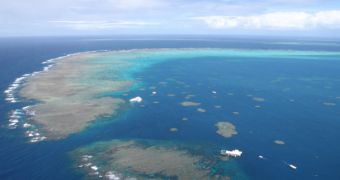Australian seabirds, which are dependent on the Great Barrier Reef for their very survival, are in immediate danger of going extinct, as severe declines in populations have been noticed over the past few years. The ecosystem around the reef usually supplies enough food for the birds to breed, by recent shifts in temperature made the fish and plankton dive deeper to find the coolness they are adapted to. This makes it extremely difficult for the seabirds to fish, which is why their ability to provide for their hatchlings has decreased dramatically.
As a result, thousands of birds have already perished, either because of starvation, or because they failed to breed or take care of their eggs. This decline is mostly attributed to global warming and climate change, which adversely affected the balance of the local ecosystem. Some species registered losses of 80 to 90 percent of their individuals. If this rate continues, it's possible that these species will soon go extinct altogether, as mating seasons will no longer be able to produce sufficient offspring to perpetuate the line.
Some 1.3 to 1.7 million seabirds are currently inhabiting the great reef, which also houses more than half of the global numbers of some species. A severe reduction in these populations could mean that many species all around the world could also be classified as endangered or threatened. However, the global temperature rise is not the only one to blame. More accurately, it’s temperature fluctuations that take the largest toll on the birds. The frequency at which these changes occur is far larger than the speed with which the animals can adapt to change. And inability to adapt means certain death, as far as Mother Nature goes.
The recent study came to these conclusions after noticing that human activity played no role in the decline. The sizes of their habitats also remained almost intact, so the only logical explanation for the birds dying is a dramatic reduction in their overall food supply. Scientists say that there is little anyone can do to stop this trend, except maybe stop climate change, which is highly unlikely to happen very soon.

 14 DAY TRIAL //
14 DAY TRIAL //